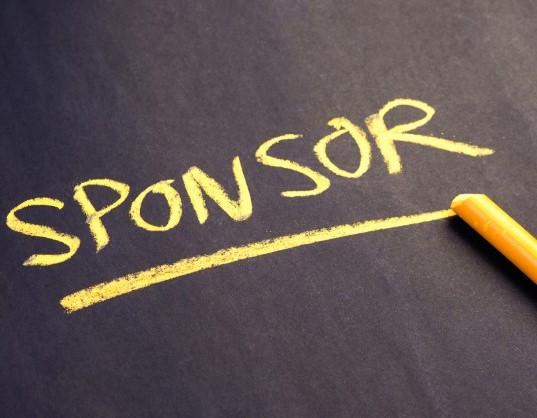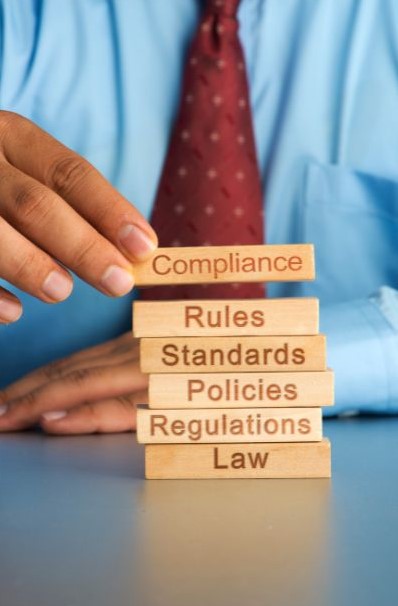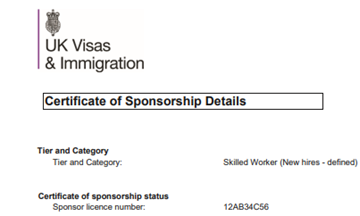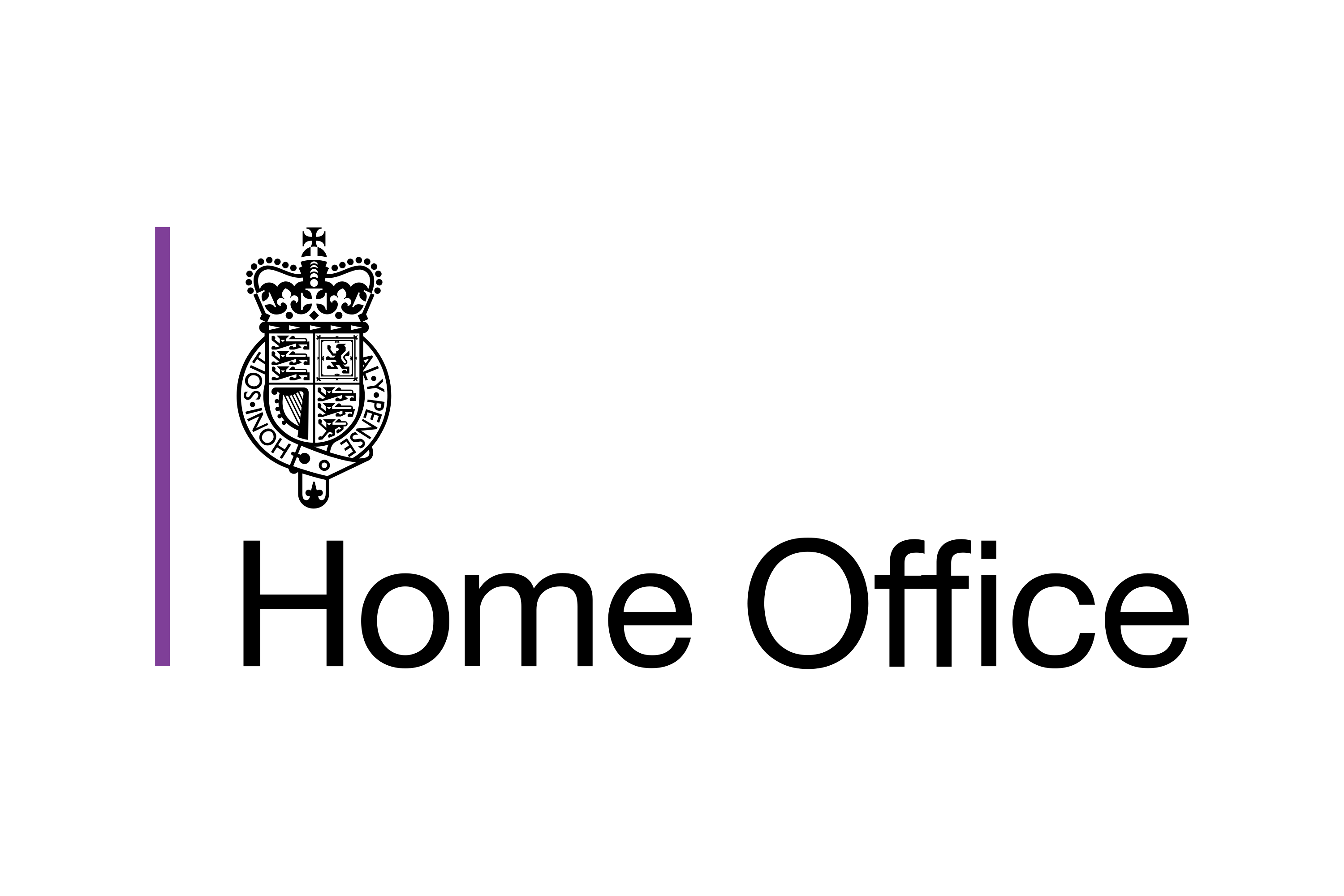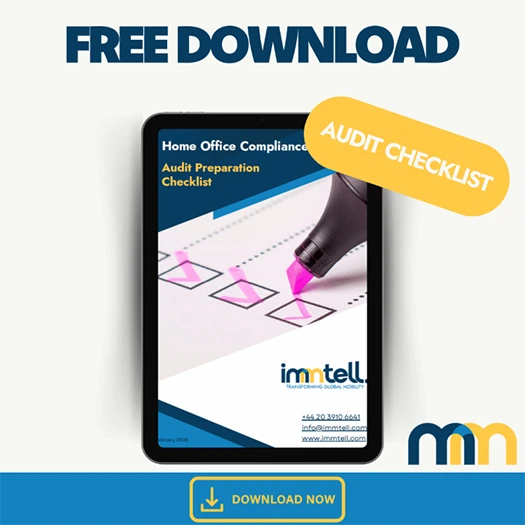How to Tell if Your Sponsor Licence Is at Risk
From missed reporting deadlines to weak HR processes—find out what could trigger a Home Office sponsor licence suspension or revocation.

Sponsoring overseas talent is often essential to business success, but it also comes with strict responsibilities.
Home Office compliance activity is increasing. Inspections are becoming more targeted, and penalties are tougher. Whether you're a growing startup or a well-established business, the question stands:
Would your sponsor licence stand up to scrutiny if the Home Office audited you tomorrow?
Many businesses we support think they’re compliant, until a mock immigration compliance audit reveals otherwise. In this post, we’ll walk through the most common red flags that suggest your licence might be at risk, and what you can do today to avoid unwanted attention from the Home Office.
Why Sponsor Licence Compliance Still Catches Employers Out
Your Home Office sponsorship licence isn’t just a box-ticking exercise. It’s a live permission to sponsor workers under the UK immigration system, and it can be suspended, downgraded or revoked if you fail to meet the rules.
Since early 2024, we've seen:
- More unannounced visits (especially in sectors relying heavily on Skilled Workers)
- Sharper focus on record keeping and reporting
- Increasing use of data sharing between departments to spot issues (like payroll mismatches or location changes)
With further rule changes taking effect as of September 2025, it's more important than ever to review and verify your compliance setup.
Five Red Flags That Suggest Your Licence May Be at Risk
1. You're Not Sure Who Your Key Personnel Are, or If They’re Still With You
Your sponsor licence requires three named Key Personnel:
- Authorising Officer – holds overall legal responsibility
- Key Contact – main point of communication with the Home Office
- Level 1 User – manages the Sponsor Management System (SMS)
If one of these people has left the business, changed roles, or is unavailable, and you haven’t updated the SMS, you’re already in breach of your sponsor duties.
We regularly find licences where the Level 1 User hasn’t logged in for months, or the Authorising Officer is listed as someone who left years ago.
Risk: Non-compliance due to outdated or unmonitored Key Personnel responsibilities can lead to licence suspension or restrictions.

2. Right to Work Checks Are Inconsistent Across the Business
The Home Office takes illegal working very seriously. Since 2023, the maximum civil penalty for employing someone without the right to work has increased to £60,000 per worker.
You must carry out and retain compliant right to work checks on all employees, not just those you sponsor.
Warning signs include:
- Different teams doing checks in different ways
- Incomplete records (e.g. no date of check)
- No internal auditing or spot checks
- Misuse of online right to work systems for manual documents, or vice versa
Risk: Even if your sponsored workers are fully compliant, poor right to work practices elsewhere in your organisation can lead to civil penalties and sponsor licence action.
3. You Haven’t Carried Out a Mock Audit in the Past Year
A Home Office audit can be announced or unannounced, and will usually involve:
- A review of files and systems
- Spot-checking sponsored worker records
- Assessment of your HR processes
- Questions about how you monitor visas, absences, and working hours
If the last time you reviewed your sponsor compliance was more than 12 months ago, or if you've never done a mock audit at all—you’re working in the dark.
Risk: You may not be aware of system issues until it’s too late to fix them.
4. Sponsored Roles No Longer Match the Certificate of Sponsorship
Even when a worker’s visa was valid at the time it was issued, changes over time can make them non-compliant without anyone realising.
Ask yourself:
- Have any sponsored workers changed job duties, locations, or salaries?
- Would their current responsibilities still align with the occupation code listed on their Certificate of Sponsorship (CoS)?
- Have you reported these changes, if required, on the SMS? Or should a new CoS have been issued and a change of employer visa application submitted?
The Home Office expects sponsors to ensure that workers remain in roles consistent with those originally sponsored. If the worker is effectively doing a different job, a new CoS and visa application may be required, or reporting within 10 working days.
Risk: If a worker no longer meets the requirements for the role listed on their visa, your organisation may be found in breach of sponsorship duties, even if there was no intent to deceive.
5. You’re Relying on One Person to Handle Everything
Many businesses, especially SMEs, place sponsor compliance in the hands of a single HR manager or operations lead. If that person is off sick, on leave, or leaves the company, things quickly fall through the cracks.
Sponsor compliance should be embedded into your wider HR and operational systems, not reliant on one inbox or spreadsheet.
Ask:
- Who’s responsible for monitoring visa expiry dates?
- Is there cross-training for using the SMS?
- Are your sponsor processes documented and reviewed?
Risk: Over-reliance on one person can lead to missed reporting deadlines, expired visas, or overlooked CoS errors—all of which can put your licence at risk.

What To Do If You’ve Spotted a Risk
If any of the red flags above sound familiar, you’re not alone, and you don’t need to panic.
The first step is to get a clear picture of your risks and what needs to change. Whether the issue is minor or more complex, most problems can be fixed if they’re caught in time.
At Immtell, we help employers:
- Assess current sponsor licence compliance
- Identify technical or procedural breaches
- Prioritise what needs fixing now vs. what can be improved over time
- Prepare for audits, renewals, or internal reviews
- Train key personnel and HR teams on sponsor duties
Whether you're looking for a quick review, a comprehensive mock audit, or an external partner to guide you through sponsor compliance, we can help you stay ahead of risk.
Final Thought: Compliance Isn't a Once-a-Year Task
Sponsorship licence compliance isn’t just about submitting correct paperwork or responding to Home Office messages—it’s about actively managing your responsibilities over time.
The good news? With the right processes in place, you don’t need to lose sleep over it. But ignoring warning signs or relying on assumptions is what leads to licence action, penalties, or avoidable reputational damage.
If you're unsure where you stand or would like a second opinion, please reach out. We’re here to help you protect what you’ve built.


Unsure where your risks lie—or how serious they are?
We offer practical, proportionate support for Home Office sponsor licence holders, from targeted compliance reviews to full mock audit solutions.
We offer practical, proportionate support for Home Office sponsor licence holders, from targeted compliance reviews to full mock audit solutions.
